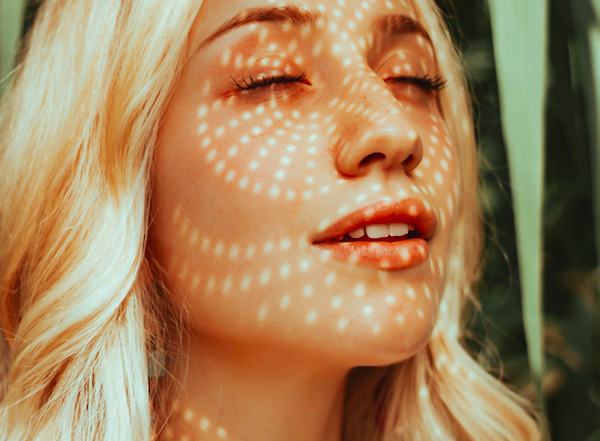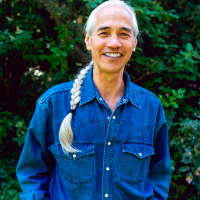This is part of a seven-part series exclusive for Elephant Journal. Follow along at the author’s profile here.
~
You were born from pleasure and you are born for pleasure.
It is your origin, source, and birthright.
As pleasure-seeking organisms, we naturally want to feel good. So, why in our pursuit of pleasure, are we often disappointed, dissatisfied, or worse, end up in pain and suffering? Is it because life, itself, is suffering, dukkha, as the Buddhists claim and pleasure is merely a fleeting reprieve from our human condition? Or could it be because we are unskillful in how we go about it?
Our ideas about pleasure derive from our culture, which is deeply confused about many things, as the nightly news makes painfully obvious.
In this exclusive Elephant Journal seven-part series, we will take a deep dive into the mystery of pleasure: what it is, how to find it, and how to use it to enjoy a beautiful and fulfilling life.
As a point of reference, I will be sharing excerpts from my recently released aah . . . The Pleasure Book, which draws on insights from history, cutting-edge neuroscience, and spiritual wisdom to arrive at a startling realization—that pleasure is a natural human resource as vital to our health and well-being as fresh air and clean water.
Pleasure, in other words, is not only the result of good health; it is the cause of it and as we will discuss, holds the key to our future survival as a species.
So let’s get into it.
Why Pleasure
This is a book about pleasure, one of life’s most important and most misunderstood experiences. Important, because it will likely determine the kinds of people you will meet, the quality of your life, your health, and even how long you live. Misunderstood, because, in your search for pleasure, it’s easy to end up in pain and suffering.
Our current state of knowledge about pleasure is similar to our understanding of human sexuality before the Kinsey report of the 1940s or death and dying before Elisabeth Kübler-Ross wrote her book of the same title in 1969. Everyone’s doing it. It’s an important part of life. But no one’s talking about it. The subject is taboo. Chances are you know more about how your car works than how pleasure does.
I know because when people would ask me, “What are you writing about?” I took the opportunity to conduct a little informal survey and have some fun.
“I’ll tell you the topic if you promise to give me your very first association—the first thought that pops into your mind, okay?” Then in a neutral voice, I’d say, “It’s a book about pleasure.”
Easily three out of five people answered, “Sex.” How they answered was even more revealing: some responded in the same “matter-of-fact” way as I posed the question; others leaned in with a devilish smile as if to say, “Tell me more.” The most interesting were those who hesitated awkwardly with an “Aah, um…pleasure, huh?” as though they had been caught in an indecent act of thinking about sex and then had to scramble to come up with a socially acceptable answer.
Obviously, there’s more to pleasure than sex. Food was a close second, followed by an assortment of responses. Still, most people associated pleasure with the five senses—a fleeting sensual experience and nothing more. This common misunderstanding has led to a great deal of confusion.
Take, for example, the recent explosion of happiness research. We’re perfectly comfortable talking about happiness in public, but when it comes to pleasure, we feel uneasy. The irony of feeling uncomfortable about pleasure is a clue that something is terribly twisted. The topic touches sensitive, erogenous no-fly zones in our collective consciousness made forbidden by shame and guilt, as though parts of our body, and by extension parts of our lives, are “dirty,” reflecting a moral disdain and distrust of the body in general.
Positive psychology researchers, bloggers, and even Buddhist monks go to great lengths to convince us that pleasure and happiness are different things. Pleasure, we’re told, is a sensory gratification that depends upon external conditions—a good meal, listening to music, slipping into a hot bath—but soon passes and is therefore unreliable.
Happiness, in contrast, may be influenced by external circumstances but does not depend on them. It is not something you can buy like a new smartphone but an inner state of fulfillment that requires cultivation and endures beyond the momentary ups and downs of life. The implications are clear: chasing after pleasure is foolish; pursue happiness instead.
While this sounds good, the distinction between pleasure and happiness turns out to be a false dichotomy that only adds to our confusion. You may have heard about the World Happiness Report, which ranks 155 countries by their happiness level. The report is based on a single data point. Respondents are asked to evaluate their current lives on a visual ladder where zero represents the worst possible life and 10, the best possible life.
The word “happy” comes from the Middle English root hap, meaning “luck” or “fortune,” as in happy birthday, happy-go-lucky, happenstance, and hapless. To equate something as profound as the best possible life—the “good life”—with something as lightweight as happiness is confusing. Martin Seligman, past president of the American Psychological Association and author of the 2002 national best-seller Authentic Happiness, has come to regret his choice of title. A decade later on his University of Pennsylvania “Authentic Happiness” website, Seligman confessed, “I actually detest the word ‘happiness’, which is so overused that it has become almost meaningless.”
To understand what “happiness” is really about, the first step is to dissolve “happiness” into more workable terms. In the chapters ahead, we’ll do just that.
Why pleasure matters
It is important to understand that our desire for pleasure is not a choice we make, moral or otherwise. It is woven into the very fiber of our being and is fundamental to our human existence. We are biologically hardwired to seek pleasure in the same way a single-celled amoeba extends a pseudopod (a stream of cytoplasm) toward nutrients and away from a sharp probe.
Every organism moves toward what supports its existence and away from what threatens it simply because those who didn’t were quickly eliminated from the gene pool. In primitive life forms, we refer to these survival responses as instinct. In more complex animals, like ourselves, these survival instincts have evolved into what we call pleasure and pain—the twin cardinal coordinates by which we take our bearings and navigate through life. Obviously, if your onboard GPS is out of whack, it’s easy to get lost. It happens all the time.
The pursuit of pleasure is a given, but when we ask ourselves what kind of pleasures we should pursue, things get complicated. Unlike other organisms whose instincts evolved to adapt to the demands of a relatively static, natural environment, we humans create our own physical and psychological environments in the form of cities, houses, possessions, language, myths, beliefs, fashion, customs, laws, religion, and other cultural institutions. Navigating these complex urban and cultural landscapes is much more difficult, and to confound matters, they are continually shifting at an increasingly accelerating pace, spurred on by technology.
As humans, we face countless dilemmas such as: Would it be better to live in the city or the countryside? Should I buy a house or rent? Am I religious? Should I own a gun? How do I feel about gay marriage? Abortion? What should I wear to the party? Our answers depend on what we prefer, which reflects our values. How you answer is just another way of saying what pleases you.
What pleases you turns out to be an extremely important question. As I noted at the outset, your answer will likely determine the kinds of people you meet, the quality of your life, your health, and how long you live. This is because the pleasures you seek become habits, habits become a lifestyle, and in medicine, lifestyle is destiny.
According to a 2009 landmark study, 80 percent of the most common life-threatening diseases—diabetes, heart attack, stroke, and cancer—can be prevented through healthy lifestyle choices alone. So, why aren’t we making those healthy choices? Or to restate it more precisely: why is it, that in our pursuit of pleasure, we often end up in pain and suffering?
This is a question of the utmost importance, and as a doctor, a question that has haunted me for decades. I see patients every day who know how much better they feel when they eat healthy foods, exercise regularly, and so on, but then don’t do it.
If we are pleasure-seeking organisms, why would we not do the very things that make us feel good? The answer may surprise you.
~
To find out more please check out the book trailer here.
~









Read 2 comments and reply